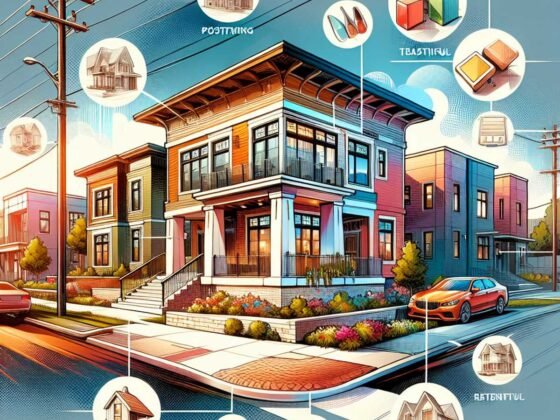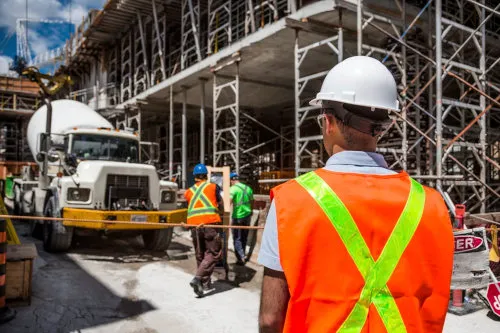Table of Contents Show
Humans are emotional beings. Daily, we tend to make more emotional decisions than rational and logical decisions in most aspects of our lives.
From picking a toothbrush to buying a home, emotions play a massive role in our decision-making.

You might have finally found the “perfect home.” It has all the “must-haves” and “nice-to-haves,” and it feels right.
What Is a Home Inspection?
A home inspection is a non-invasive investigation of a home’s condition. A home inspector should have the training and qualifications to conduct such an inspection.
He/she then prepares a written report of the findings and gives that to the client (you). The client then uses the information to make an educated decision about their pending real estate purchase.
The home inspector describes the home condition at the time of inspection but is unable to guarantee future efficiency, condition, or life expectancy of components or systems.
Despite its importance, it has its limitations. There is no such thing as a perfect house; something always comes up.
A home inspection cannot predict everything wrong or everything that could go wrong.
However, that being said, having knowledge of 85% of what is wrong and what could go wrong sooner or later is much better than not knowing at all about your future home.
The goal is to ensure you are buying a safe home.
A home inspection also applies to the seller as much as it applies to buyers. The smart seller would prepare for inspection even before his house is listed for sale.
A smarter Realtor should stroll through the home and be able to recognize items that could show up in an inspection report and offer advice to the seller to fix those issues before their property is listed, to command a higher price.
Read Also:
Don’t Get Antsy
The process of buying a home is an exhilarating yet hectic experience. You might even try to cut the process short to get home as quickly as possible.
You’re pretty excited about the prospects of getting the home of your dreams. The offer seemed pretty good.
What could go wrong? You begin to ask yourself, “Do I need a home inspection? Maybe I don’t need it. I trust the seller.”
The simple answer is YES. Yes, you need a home inspection. Some people try to skip a home inspection to make their offer more attractive to the seller, but this is a gamble and is not an acceptable one.
At the end of the negotiations, the house might eventually become yours, but along with it might be a whole multitude of unforeseen and costly problems that you would have to deal with on your own with thousands of dollars.
A home inspection is crucial if you want to decrease your chances of facing unforeseen expenses and hazards.
An average buyer would only spend between 15 minutes and 1 hour looking at the house they decided to buy.
If there is enough time, some might even go back for a second show. One hard truth you should take out of reading this article is that it is impossible to scrutinize a house in that little time exhaustively.
Like I said earlier, buying a home is greatly influenced by emotional factors; you are bound to make regrettable severe mistakes if you buy a house based on mere emotions.
The input of a neutral, competent, skilled, and reliable third party is required in taking such a huge financial step. They help to add logic and sanity to the decision-making.
This third party is the home inspector and helps remove the emotion and takes the time to perform an exhaustive examination of the home.
Typically, a home inspection should take between 3 to 4 hours.
Cost
Many buyers may struggle with a home inspection cost, which usually ranges between $400 and $600.
So, the question of why you need a home inspection would be a very valid one.
But, “Failure to obtain a home inspection could potentially cost you a great deal of money and hassles in the long run,” says the National Association of Realtors.
To you, it is in excellent condition, yet looking like it’s in perfect condition is not good enough when it comes to making such an important financial decision.
You must realize that this is a home that you are buying, not a toothbrush from Walmart. It would help if you found ways to cut down the emotions to a very bare minimum.
A home inspection and an appraisal are two parts of the home buying process that will help. This article will talk about home inspection and why it’s important to have one.
What Should Your Inspector Look at?
During a home inspection, both the physical structure of the home and the critical internal systems will be carefully assessed by the inspector.
You should try your possible best to be around during the inspection and also make sure that the examination includes the following:
- Plumbing system
- Electrical system
- Windows and doors
- Walls, ceiling, and flooring
- Foundation
- Roofing
- Heating and cooling systems
- Insulation
- Basement
- Attic
- Radon detection equipment, if applicable
As much as possible, try not to get in the way of the inspector. You can ask questions about the possible issues that can arise. But realize the more you distract them, the more they might miss.
What to Do with the Home Inspection Report?
The inspection report includes all of the inspector’s findings. They are usually very detailed and contain information about the condition of various portions of the home inspected.
A report can have dozens of issues but don’t be alarmed because many of the deficiencies noted by the inspector are relatively small.
Most Sellers love their homes and might not have a very objective viewpoint nor see the problems in the light that your inspector sees them.
So, take deep breaths when the inspection notice gets to you. Keep an open mind and recognize that you have several options if the inspection uncovers more issues than you’re comfortable dealing with.
The contract should state whether the house is being sold as-is or if the seller is obligated to make a specific dollar figure of repairs if warranted.
For the Buyer
You can decide to back out of the sale altogether. You can decide to negotiate with the seller to have him/her make the required repairs or lower the overall price of the home.
If you are content with the home’s condition, you can move forward through the closing process to the next step.
For the Seller
You also have several options to pick from when the inspection report gets to you as a seller.
Meeting the potential buyer halfway is one option. You can also agree to their request list and make the suggested repairs if you think it is reasonable.
There is another option of dropping the home price due to the defects found or offer the buyer a credit at closing.
Conclusion
Despite the limitations of a home inspection, its importance cannot be over-emphasized.
Home inspections are intended to give both parties an impression of the current state of the property at stake and point out as many current and future problems as possible.
The ultimate purpose of a home inspection is to give both the buyer and seller confidence and assurance.
Overall, a home inspection is an effective way to reduce risks, avoid hassles and waste of time, money, and energy, for both the buyers and the sellers.
Reduce future costs by addressing the problems in the present. So, YES, you need a home inspection.









